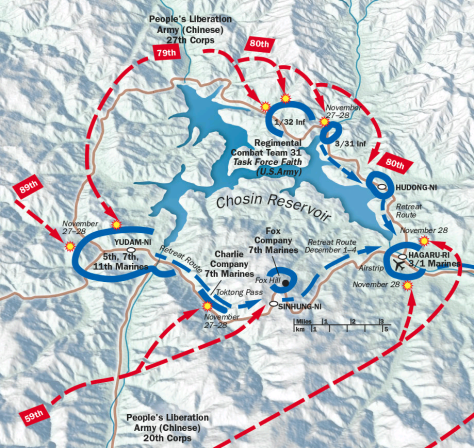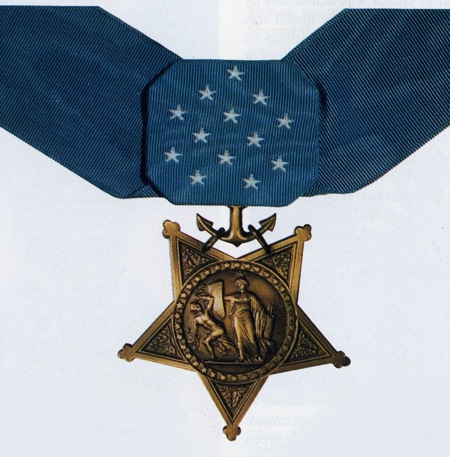A while back, I finished a book called “Beyond The Call: The True Story of One World War II Pilot’s Covert Mission to Rescue POWs on the Eastern Front”. It’s about a World War 2 heavy bomber pilot who completes 35 missions, and then goes into the Soviet Union (our allies, at the time) to rescue American POWs who were starving or being kidnapped or murdered by the Soviet secret police.
I found a very good article about it from Stripes, to just quickly introduce the story:
Later, after making contact with POWs roaming the Polish countryside, [Capt. Robert Trimble] fully embraced his mission. He saw the desperate plight of those who had been liberated from Third Reich prison camps. Many were sick, emaciated, often clothed in rags and left to fend for themselves during a brutally harsh winter.
Trimble risked his life numerous times over six weeks, helping to rescue hundreds of POWs. He came to the aid of others, too. In one daring rescue, nearly foiled by Russian agents who had become suspicious of his activities, Trimble helped 400 French women make it out of Poland and back to France.
Although he was being constantly trailed by Russian spies and informers, he would evade them, and bring food and money to the POWs, then put them on a train to Odessa, Ukraine, where they could get onto a ship going home.

Why I read military history
It is hard to develop virtues just by wishing and hoping. Something has to go into your mind that causes you to think differently, and feel differently. Everything that you watch on TV, hear on the radio, or see in the movie theater, is made by secular leftists. They aren’t trying to build your moral character. They’re goal is to break down your resistance to their unBiblical worldview and moral values. Instead of giving people who hate Jesus your money, just so you can be entertained, why not try to put something in front of your eyes that will make you better?
Look at this famous passage from the Bible.
1Therefore I urge you, brethren, by the mercies of God, to present your bodies a living and holy sacrifice, acceptable to God, which is your spiritual service of worship.
2 And do not be conformed to this world, but be transformed by the renewing of your mind, so that you may prove what the will of God is, that which is good and acceptable and perfect.
And also this from Philippians, my favorite book of the Bible.
8 Finally, brethren, whatever is true, whatever is honorable, whatever is right, whatever is pure, whatever is lovely, whatever is of good repute, if there is any excellence and if anything worthy of praise, dwell on these things.
So you can see that when I am reading, my goal is to work on my character. I want to have feelings about things that are appropriate for a Christian man.
So why military history? Here are three reasons why I read these military history books.
Humility
First, humility. Humility used to be one of my biggest challenges. So I thought to myself “instead of seeing yourself as some heroic figure, why don’t you read about some real heroes… people who willingly gave their lives for their friends, like the Bible urges, and like Jesus did by example”.
Remember this from John 15:13?
13 Greater love has no one than this, that one lay down his life for his friends.
Military history is filled with stories of courage, bravery, self-sacrifice, endurance, unselfishness, and many other virtues. When you read about people who are better than you, doing more important things than what you’re doing, it really helps you to be humble.
The best thing for humility is reading Medal of Honor citations. You can find a bunch of them online here. And if you want a book to read, try these books about Medal of Honor recipients:
Endurance
Second, endurance. I sometimes feel badly about not having found someone to marry and not having lots of children. I wanted a good marriage to be a model for others, and also to have an influence in the next generation through my children. However, whenever I read military history, I see a lot of young men dying in battle. And I think, they too won’t know what sex is like. And, they too won’t know what marriage is like. And, they too won’t know what having children is like. But it’s not just the ones who die, it’s the hardships they have to go through, as well. Cold, hunger, imprisonment, pain, loss of their friends, etc.
I remember reading about one of my favorite battles – probably the most famous battle of the Korean War, which is our most moral war. It’s about Fox Company of the 2nd Battalion, 7th Regiment, 1st Marine Division. They had to hold a hill beside a vital road against overwhelming numbers of Chinese soldiers during the freezing cold North Korean winter. I remember reading about how one soldier got up to go to the bathroom, and was nearly shot by a sniper. He fell over on his own poop, which had already frozen by the time it hit the ground. For months after, I would always think about this whenever I went into a bathroom. We have pre-warmed water in our bathrooms at work, along with soap, lysol spray, febreeze, contact lense cleaner, hand sanitizer, and other things. Just understanding what other people have to go through in war helps me to be more patient with the little tiny setbacks that I experience. I used to get very anxious when anything went wrong, because of I was raised by strict immigrant parents. That anxiety seemed to last a long time, but since I started to read military history, I’ve been much more patient. I know that things could be worse.
Thankfulness
The third thing that I’ve experienced is thankfulness. Not just for all the things that I have because of what our armed forces have done, e.g. – basic human rights, prosperity, liberty, security, etc. But also specifically about those who gave their lives so that I could live free in a free country, and practice my Christian faith without fear.
Here are two of my favorite Medal of Honor stories from World War 2, in the Battle of Pearl Harbor:
Congressional Medal of Honor
Awarded Posthumously
PETER TOMICH
Rank and organization: Chief Watertender, U.S. Navy.
Place and date: Pearl Harbor, 7 December 1941.
Born: 3 June 1893, Prolog, Austria.
Although realizing that the ship was capsizing as a result of enemy bombing and torpedoing, Tomich remained at his post in the engineering plant of the U.S.S. Utah, until he saw that all boilers were secured and all fireroom personnel had left their stations, and by so doing lost his own life.
And:
Congressional Medal of Honor
Awarded Posthumously
JAMES RICHARD WARD
Rank and organization: Seaman First Class, U.S. Navy.
Place and date: Pearl Harbor, 7 December 1941.
Born: 10 September 1921, Springfield, Ohio.
When it was seen that the U.S.S. Oklahoma was going to capsize and the order was given to abandon ship, Ward remained in a turret holding a flashlight so the remainder of the turret crew could see to escape, thereby sacrificing his own life.
I do think that it’s important for Christians to read these kinds of stories in order to feed their own awareness of what it must have been like for Jesus to give his life voluntarily for us.
There is no shortcut to gratitude. You have to constantly reflect on the sacrifices made by others for you, if you are to have any concrete reason for feeling grateful. The more you read about examples of people giving their lives for others, the more you’ll appreciate what Jesus did for you. It will make you grateful.
There is a very annoying idea out there in the culture that says that people just do whatever is easy and fun for themselves, and since everyone else is always doing what makes them feel good, then there is no need to be thankful for anything. It’s comforting for people to delude themselves with that belief, but it’s false.
My reading list
You can check out the “What I am Reading” section of the blog to see which military history books I’ve been reading.






